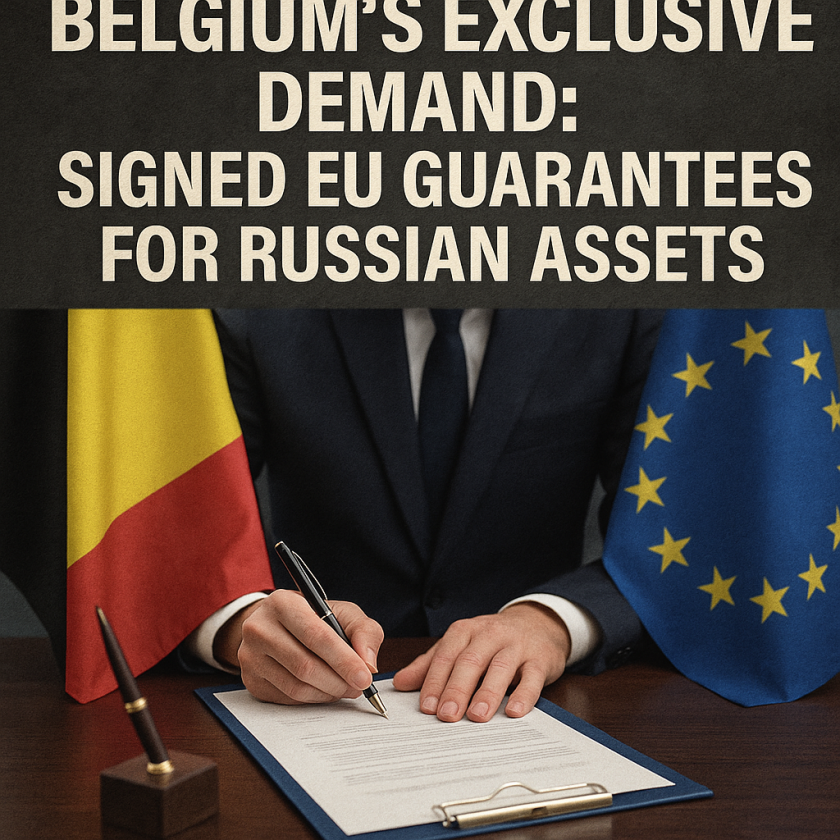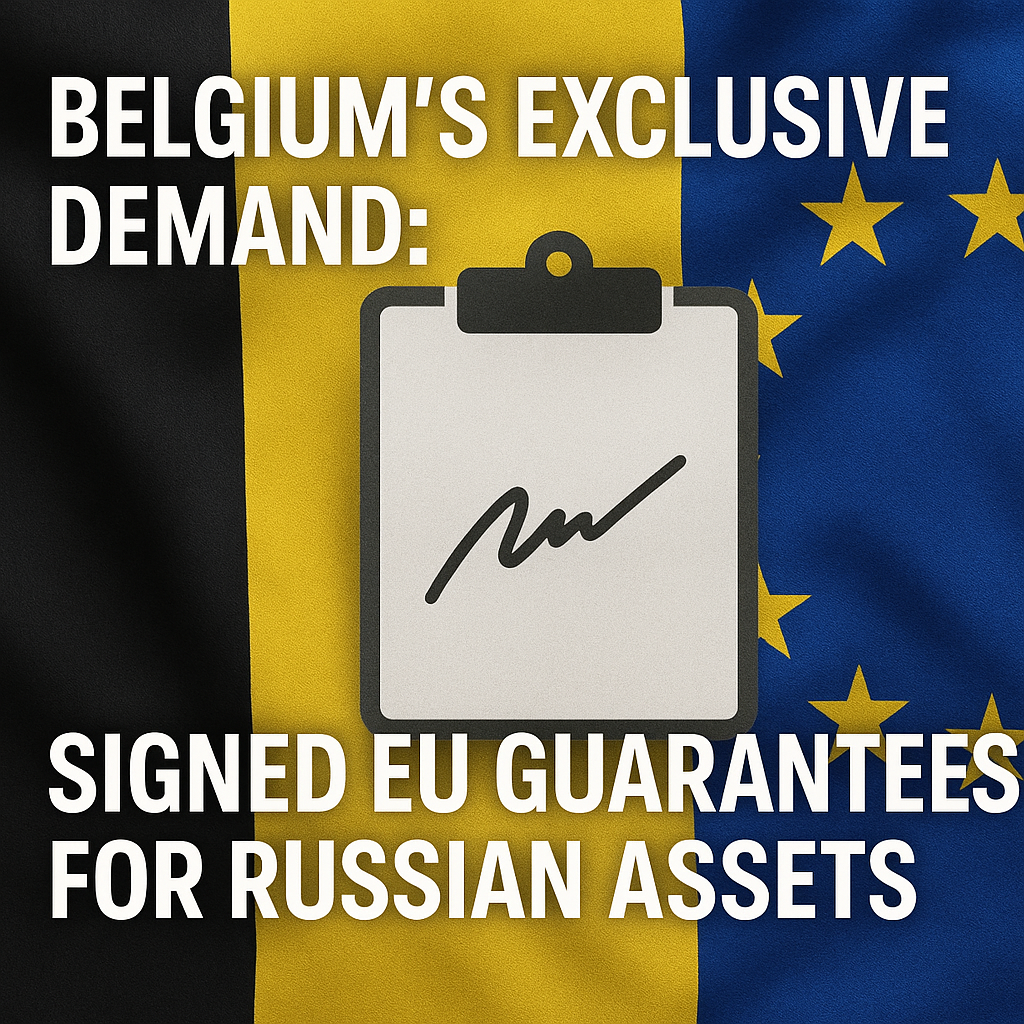Belgium’s Exclusive Demand: Signed EU Guarantees for Russian Assets
Belgium’s Exclusive Demand: Signed EU Guarantees for Russian Assets
Belgium’s call for secured EU guarantees concerning Russian assets has emerged as a significant topic in discussions surrounding the Ukraine conflict. The complexities of this issue reflect not just political maneuvering but also the broader implications for European unity and economic stability.
The Context of Belgium’s Stance

Belgian Prime Minister Alexander De Croo has positioned his government against a collective EU initiative aimed at utilizing frozen Russian assets to support Ukraine’s recovery. While many EU members have rallied in favor of this strategy, Belgium’s insistence on having concrete guarantees showcases a distinct approach to the ongoing geopolitical crisis. According to De Croo, the lack of assurance regarding these assets could deter long-term investments and complicate future relations with both Russia and Ukraine.
Divergent Perspectives from EU Member States
The stance taken by Belgium does not exist in a vacuum. Across the EU, reactions to the proposed use of Russian assets reveal contrasting perspectives.
1. Support for Asset Utilization: Several EU nations advocate strongly for leveraging these assets to financially bolster Ukraine. The logic behind this perspective is simple: using funds from entities believed to be partially responsible for the ongoing conflict could help mend the damage inflicted on Ukraine’s economy. Proponents argue that utilizing frozen assets serves to send a message that aggression has financial repercussions.
2. Concerns about Legal and Diplomatic Fallout: Conversely, Belgium’s reluctance highlights a significant concern among some EU member states regarding the potential legal ramifications of seizing and reallocating these assets without clear guarantees. In a world that increasingly values the rule of law, a hasty approach to asset allocation might set a dangerous precedent—one that could strain diplomatic relations not just with Russia, but with non-EU countries and investors.
3. Economic Stability and Future Relationships: Belgium argues that without explicit guarantees, the move could lead to a slippery slope of economic uncertainty. Other nations might begin to question the security of their investments within the EU’s jurisdiction. Some experts have pointed out that a lack of a coherent strategy might destabilize the fragile economic recovery many countries are navigating following the pandemic.
Exploring the Implications of Belgium’s Demand
Belgium’s insistence on EU guarantees for Russian assets may appear as a singular national sentiment, but it raises broader implications about unity and decision-making within the European Union.
The Potential for Fragmentation
While the EU has historically shown remarkable resilience in the face of crises, the disagreement over asset usage could signal cracks in its foundation. Belgium’s demand might resonate with other member states that are hesitant about the implications of such a sweeping initiative. If a significant number of EU nations begin to echo Belgium’s call, it could lead to a fragmentation of views that complicates the bloc’s ability to respond cohesively to external threats.
– Possibility of Dual Tracks: There’s a potential for a bifurcated approach, where some countries may move forward independently with asset utilization while others, like Belgium, retain a more cautious stance. This could create a two-tiered EU response, subsequently leading to varying political and economic impacts across the region.
The Human Element: Why Guarantees Matter
The focus on signed guarantees also has human ramifications. Ukrainian citizens, who continue to suffer from the repercussions of the conflict, might view the hesitation as a lack of commitment from European allies. How does the EU reconcile its necessity to adhere to legal frameworks while also responding to urgent humanitarian needs?
– Balancing Law and Morality: Belgium’s demand for guarantees can be interpreted as aligning with a broader commitment to uphold legal frameworks. However, this creates a tension where moral imperatives to assist Ukraine clash with the legal complexities involved in reallocating Russian assets.
Conclusion: Navigating a Complex Landscape
Belgium’s unique demand for signed EU guarantees regarding Russian assets raises critical questions about the future of European unity amid geopolitical challenges. While some member states advocate for the aggressive use of these frozen assets to support Ukraine, Belgium’s cautious approach serves as a reminder of the intricate balancing act the EU must perform between legal integrity, economic stability, and humanitarian efforts.
As this situation evolves, it remains unclear how the EU will forge a unified response that addresses these diverse needs without causing irreparable strain among its member states. Ultimately, the discourse surrounding Belgian demands serves as a microcosm of the broader tensions within the European Union as it grapples with transforming geopolitical dynamics.




































